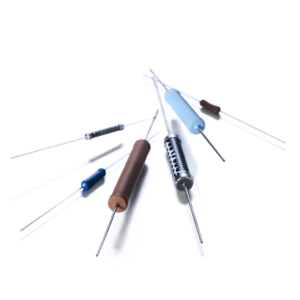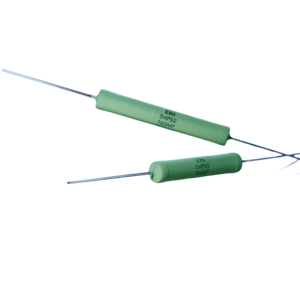High-voltage resistors ensure that voltages are regulated. They enable precise measurement and thus increase safety in the vicinity of electrical systems. Each design and each voltage range offers specific advantages and can be optimally tailored to different applications.
This article provides an overview of the three most important types of high-voltage resistors and shows the areas of application in which they demonstrate their strengths.

Cylindrical high-voltage resistors are among the most commonly used designs. Their construction allows for a compact design with high voltage and power resistance. Thanks to their robust structure, they are ideal for applications where reliability and long service life are crucial.
Typical advantages
Areas of application

Flat high-voltage resistors offer an ideal solution when compact designs are required. Their flat design makes them particularly suitable for integration into devices with limited space. In addition, their geometry enables efficient heat dissipation, which keeps operation stable even at higher power levels.
Typical advantages
Areas of application

When maximum accuracy and long-term stability are required, ultra-high-precision resistors are the right choice. They are characterized by minimal tolerances and excellent temperature and long-term stability. These high-voltage resistors deliver consistently reliable measurements even in sensitive applications.
Typical advantages
Areas of application

The choice of the right high-voltage resistor depends heavily on individual requirements.
Important factors when selecting
An example: In medical technology, compact flat resistors that can be installed in tightly dimensioned devices are often required. In energy technology, on the other hand, robustness plays a decisive role, so cylindrical high-voltage resistors are preferred. For precise measurement tasks in research and industry, ultra-high-precision resistors are used.
There is a suitable high-voltage resistor for every requirement, whether robust, space-saving, or high-precision:
The decision for the right variant depends on factors such as load capacity, design, accuracy, and operating environment. By taking the appropriate criteria into account, you can ensure that systems work reliably and deliver stable results in the long term.